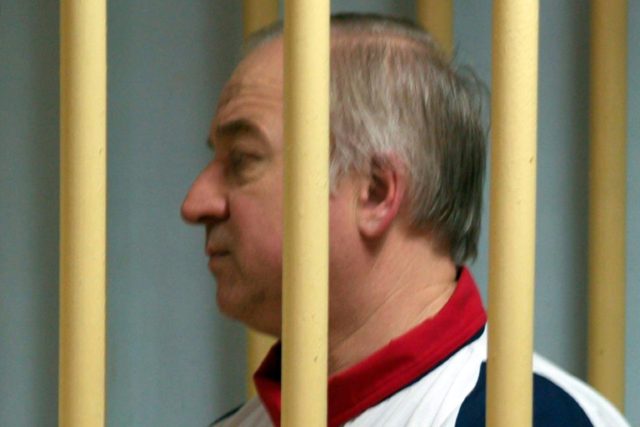London (AFP) – Senior British ministers will hold an urgent meeting Wednesday to discuss the suspected poisoning of a former Russian spy, as tensions rise with Moscow over his collapse outside a shopping centre.
Interior minister Amber Rudd will chair a meeting of Cobra, which is called to deal with national emergencies, to assess the situation of Sergei Skripal, who moved to Britain in a 2010 spy swap.
He and his daughter Yulia are in critical condition in hospital after being exposed to an unknown substance, which led them to collapse on a bench in the southwestern English city of Salisbury on Sunday.
Police say they are keeping an open mind about what happened, but Foreign Secretary Boris Johnson on Tuesday pointed the finger at Russia.
He noted the “echoes” with the 2006 poisoning in London of former Russian spy and Kremlin critic Alexander Litvinenko, which Britain has blamed on Moscow.
Authorities have yet to publicly identify the source of the Salisbury poisoning, but experts said it was unlikely to be radiation as in Litvinenko’s case.
Skripal, 66, and his 33-year-old daughter had lunch at a nearby restaurant before walking to the shopping centre, where witnesses said they appeared “out of it”.
“Radiation poisoning tends to take tens of hours to several days to show symptoms after exposure,” said Professor Malcolm Sperrin, a medical physics expert with the state-run National Health Service (NHS).
“This may have been chemical, but we can’t be sure.”
Police reportedly took away the table and chairs where Skripal and his daughter were sitting in Zizzi’s restaurant for analysis.
Some emergency services personnel who treated the pair required medical treatment, and The Sun tabloid reported that two police officers had itchy eyes, wheezing and rashes.
Newspaper reports speculated on the use of thallium, which dissolves in water and is odourless and tasteless, or the banned VX nerve agent used on the half brother of North Korean leader Kim Jong Un.
The BBC reported that without knowing the cause, the hospital treating Skripal and his daughter could only treat their symptoms, citing one source as saying that he “is not in a good way at all”.
– ‘Prejudge the facts’ –
Prime Minister Theresa May was updated on the situation at a meeting of her national security council on Tuesday afternoon, but she has yet to publicly comment.
Her spokesman said it was “important not to prejudge the facts”, although she is likely to be asked about the case during Wednesday’s House of Commons question time.
Counter-terrorism command in London’s Metropolitan Police took control of the case on Tuesday, citing the “unusual circumstances”.
The Times newspaper reported that the investigation would look into the 2012 death of Skripal’s wife from cancer, and that of his 44-year-old son last year in St Petersburg, reportedly from liver problems.
Moscow responded with anger to suggestions that it was responsible for targeting Skripal, a former colonel in Russian military intelligence who was jailed for betraying agents to Britain’s MI6 secret service.
He was pardoned before being flown to Britain as part of a high-profile spy swap involving Russia and the United States in 2010, and has kept a low profile since.
Johnson told MPs that Britain would respond “appropriately and robustly” if a government was found responsible, and made several references to Russia.
“We regret that instead of a proper official clarification on the issue the foreign secretary chose to threaten Russia with retribution,” the Russian embassy in London said in a statement.

COMMENTS
Please let us know if you're having issues with commenting.